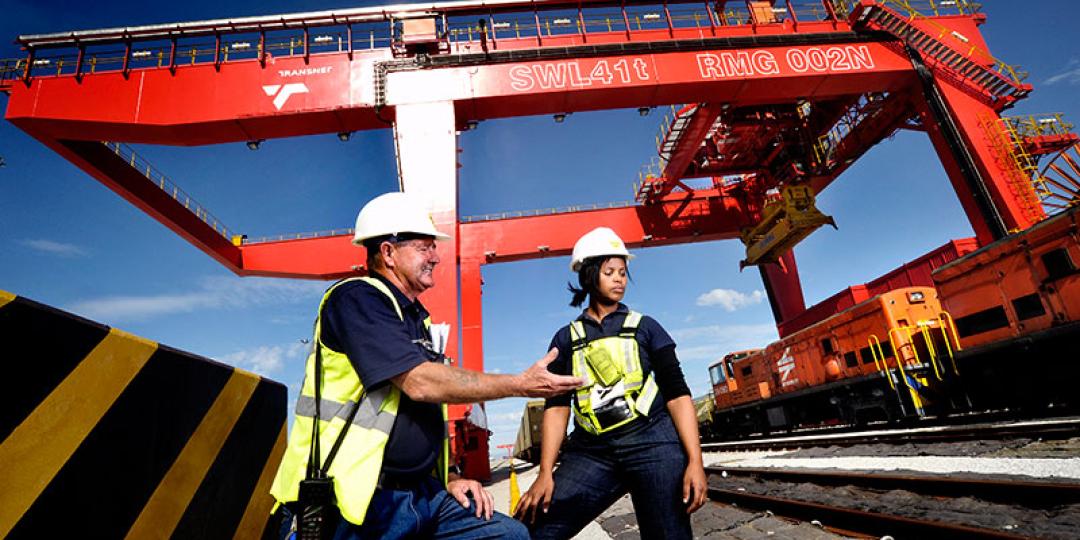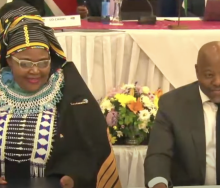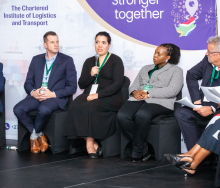South African port and rail workers have downed tools in a stayaway, as the first stage of its strike after eight hours of wage talks with the employer reached another deadlock on Wednesday night.
However, Transnet has labelled the industrial action an “illegal and unprotected” strike, which the United National Transport Union (UNTU) has rejected as baseless.
UNTU General Secretary, Cobus Van Vuuren, said in a statement that its negotiating team had concluded more than eight hours of “robust engagements” with Transnet’s management team, that started at 14h00 on Wednesday and ended at around 01h00 on Thursday morning. The stayaway was scheduled to start at 00h01on Thursday.
“Unfortunately, Transnet Management has not provided a revised offer that is aligned with the mandates that we have received from our members and, as such, will not be formally subjected to the formal mandating process for acceptance or rejection by the members,” Van Vuuren said.
He said the Transnet revised salary increase offer at the end of the negotiations included:
- An across-the-board increase ranging from 3% to 4% depending on grade, plus back pay paid in three tranches.
- 13th cheque
- Acting allowance where applicable
- Leave provision
- 3% housing allowance increase
- 3% medical subsidy increase
- A once-off lumpsum payment of R5 000
Van Vuuren said the union had requested the Transnet Bargaining Council to establish the strike’s picketing rules but it had not met the 23 September deadline to do so.
“Transnet management refused to talk about the picketing rules after we entertained listening to their proposals until 11pm,” Van Vuuren said.
He said due to a lack of picketing rules the strike action would be in the form of a stayaway to ensure workers remained protected.
Van Vuuren told Freight News on Thursday morning that members had widely supported the stayaway. The union represents about 33 000 of Transnet’s 35 000 employees.
“The strike has been overwhelmingly supported; all our members are out and about and are all supporting the strike action,” he said.
Employees classified as ‘essential services’ are excluded from the strike. This includes marine services that ensure the safe flow of vessel traffic in port approaches and a safe stay at berth when moored or at anchor, such as vessel controllers, pilots and tug operators.
Transnet spokesperson, Ayanda Shezi, said some employees across its operations had embarked on “illegal strike action following non-resolution in the ongoing wage negotiations”.
“Transnet has made concerted efforts by improving its wage offer on a further four occasions, in spite of the operational and financial challenges facing the organisation, and understanding fully the impact any strike action would have on employees, industry and the economy,” Shezi said.
“Any strike action taking place presently is illegal and unprotected, as one of its unions, the United National Transport Union has not followed the prescripts as set down in the Labour Relations Act prior to embarking on the strike.”
She said Transnet’s primary focus was to avoid mass industrial action as this would have a “profound impact” on economic activity across all sectors. She urged workers to consider the long-term consequences of the strike.
“Transnet believes that its revised offer is reasonable and fair, and deserves serious consideration given the company’s current operational and financial performance.”
She said the wage discussions had “unfortunately not yielded an agreement” and Transnet had advised UNTU that its strike notice, served on 3 October 2022 was legally defective.
However, Van Vuuren said this was not correct as the union had followed all the requirements of the Labour Relations Act to embark on protected industrial action.
“Wage negotiations were supposed to commence in November 2021 but Transnet has consistently delayed the negotiating process. We eventually sat down for the first time in May this year, two months after the wage increases should have been agreed and implemented,” said Van Vuuren.
“They have consistently obstructed and delayed the process. Their initial offer was a 1% increase, they moved to 1,5% and we declared a deadlock. The matter was heard by the CCMA and the commissioner issued a certificate of non-resolution, which enables us to embark on industrial action,” he said.
He said a total of 89% of workers had rejected the 1.5% wage offer and 83% of workers had voted in support of strike action.
“This is yet another delaying tactic Transnet is employing to frustrate the members and to attempt to ensure the strike doesn’t take place in full force and effect. They are hoping this will demotivate people from continuing with the strike,” he said
Shezi said Transnet could not predict the turnout of the strike or its potential impact on operations, but it was committed to discussing its revised wage proposal.
“In the event of mass industrial action, contingency plans will be implemented and the company will do all in its power to ensure the safety of personnel and facilities. Staff have also been informed that the principle of no work, no pay shall be enforced,” Shezi said.













